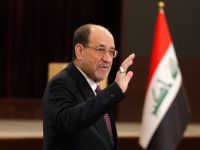Japanese Prime Minister Yoshiro Mori and his Singapore counterpart Goh Chok Tong announced here Sunday that their countries would conclude a free trade agreement by the end of next year.
In a joint statement, they said "formal negotiations should begin in January 2001" and should be concluded "within a reasonably short period of time, but not later than Dec. 31, 2001, so as not to lose momentum."
The statement was issued after Mori met with Goh, who arrived here Saturday from Seoul where they took part in the Asia-Europe Summit between 25 Asian and European leaders.
The conclusion of the free trade agreement (FTA) would be a big first for Japan, one of the few countries which does not already have in place any accords of this nature.
A joint study on the proposed free trade pact between the two countries was completed earlier this month.
Tokyo has long favored a multilateral system of commercial privileges within the framework of the General Agreement on Tarriffs and Trade, since succeeded by the World Trade Organization (WTO).
"The two prime ministers reaffirmed the primacy of the multilateral trading system and shared views that regional trade agreements must be consistent with WTO rules, and be complementary to the multilateral trading system," the statement said.
According to a Japanese government official, who played a key role in changing Tokyo's attitude towards FTAs, the accord would lead the way to total elimination of customs tariffs and a complete liberalization of exchanges of services between Japan and Singapore.
Ealier this month Japanese Minister of International Trade and Industry Takeo Hiranuma said FTAs were important as the WTO lagged behind rapid changes in the trading environment as businesses worldwide sought quick resolutions to issues they faced.
"Regional efforts to complement such multilateral negotiations are becoming a critical sub-system in terms of enhancing the stability of the global system," he said.
The Japanese government chose Singapore as its first FTA partner because the Island State has no production to cause concern to the Japanese agriculture lobby.
The main difficulty in the negotiation would be finding a formula, which would exclude agriculture without contravening WTO principles.
Following the setback in Seattle last December in launching a new round of multilateral trade negotiations, Japan decided to review its traditional stand regarding FTAs, both bilateral and regional – TOKYO (AFP)
© 2000 Al Bawaba (www.albawaba.com)









